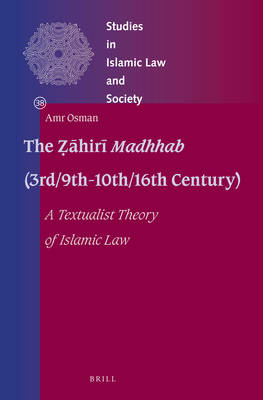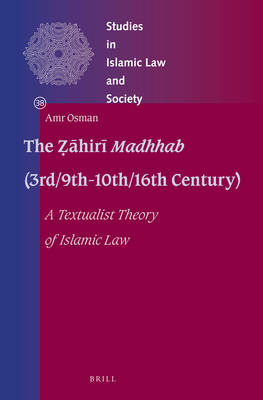
- Afhalen na 1 uur in een winkel met voorraad
- Gratis thuislevering in België vanaf € 30
- Ruim aanbod met 7 miljoen producten
- Afhalen na 1 uur in een winkel met voorraad
- Gratis thuislevering in België vanaf € 30
- Ruim aanbod met 7 miljoen producten
Zoeken
€ 232,45
+ 464 punten
Omschrijving
In this book, Amr Osman seeks to expand and re-interpret what we know about the history and doctrine of the Ẓāhirī madhhab. Based on an extensive prosopographical survey, he concludes that the founder, Dāwūd al-Ẓāhirī, was closer in profile and doctrine to the Ahl al-Ra'y than to the Ahl al-Ḥadīth. Furthermore, Ibn Ḥazm al-Andalusī may have had a damaging effect on the madhhab, which never actually developed into a full-fledged school of law. By examining the meaning of 'ẓāhir' and modern scholarship on 'literalism', he challenges the view that Ẓāhirism was literalist, proposing 'textualism' as an accurate reflection of its premises, methodology, and goals as a hermeneutical and legal theory.
Specificaties
Betrokkenen
- Auteur(s):
- Uitgeverij:
Inhoud
- Aantal bladzijden:
- 316
- Taal:
- Engels
- Reeks:
- Reeksnummer:
- nr. 38
Eigenschappen
- Productcode (EAN):
- 9789004276192
- Verschijningsdatum:
- 18/07/2014
- Uitvoering:
- Hardcover
- Formaat:
- Genaaid
- Afmetingen:
- 157 mm x 239 mm
- Gewicht:
- 598 g

Alleen bij Standaard Boekhandel
+ 464 punten op je klantenkaart van Standaard Boekhandel
Beoordelingen
We publiceren alleen reviews die voldoen aan de voorwaarden voor reviews. Bekijk onze voorwaarden voor reviews.








